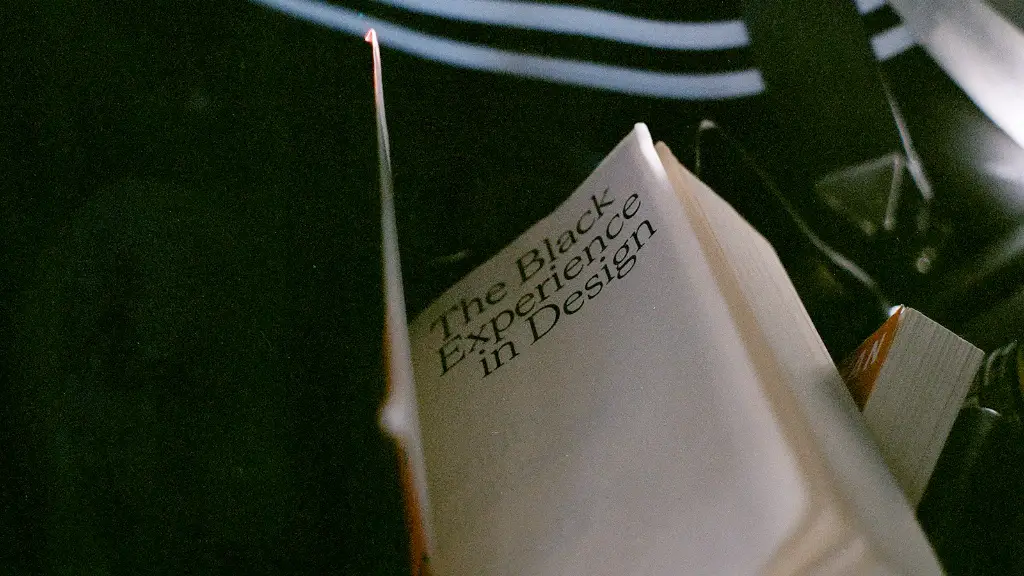Introduction
Poetry is a vital element in modern society. It is a powerful tool of self-expression that can foster deeper understanding, communal connection, and emotional healing. Emerging from the shadows of past generations, poetry has become an accessible and rejuvenating art form that captures the hearts and minds of individuals from all ages and walks of life.
The Power of Poetry
With the complex demands of the modern world, it is easy to be lost in the mundane and forget the power of self-expression and reflection. Poetry has long provided a platform to reflect and heal, with the complexities of language enabling a duality of being a creative space and also a vessel of emotional understanding. Writing or reading a poem can help to access personal feelings, impart stories, and can even inspire many people to engage in social discourse.
Accessibility
The creativity and vibrancy of modern poetry makes it a more accessible form of expression than ever before. Poetic styles are now incorporated in countless forms and outlets, from Instagram post to podcasts and publications. The digital age has allowed communicators to push boundaries and use words to create emotions as well as to support others in giving voice to their innermost feelings. Poetry is able to provide positive insight and connection, and it can contribute to the healing process for those who have been oppressed or powerless to find their own autonomous voice.
Creating Identity
In the 21st century, our identities are continually being not only created and discovered but also constantly challenged. Through the power of words, poetry can present, socially empower, and give visibility to our individual and communal identities. Poetry can convey difference, as well as unity, to explore core values and cultures within society. As a result, we can see poetry reflected in political, religious and social movements, becoming an important part of our lives as we search for inspiration, and a tool to raise awareness on various issues.
The Positive Impact of Poetry
The ever-evolving, contemporary form of communication that is poetry has been known to rectify wrongful social injustices and provide a sense of self-worth, safety and wellbeing. In communities across the world, poetry has become a form of visualization and a tool of revolution, inspiring passionate and encouraging creative antidotes to violence, poverty, discrimination and inequality. Through the strength of the human spirit, poetry has been able to engage a wide audience and spread the beauty, joy and power of words.
Inclusivity
As a unifying art form, poetry has become a gateway for inclusiveness and communal harmony. Through poetry, individuals can identify and understand cultures and shared experiences, creating a platform of acceptance, healing and growth. As a result, many poetic gatherings, readings, workshops and projects have been created, with the aim of inspiring an open-mindedness and a deeper connection with self and others.
Exploring Other Perspectives
The potential of poetry is often underestimated, but it has the power to liberate our collective voice, inspire others and foster understanding. Our unique stories and voices can be shared and connected, giving us the opportunity to explore and value the perspectives of others. Poetry conveys a range of different messages, concepts and values, allowing us to get a deeper understanding of the world and enables individuals to express their opinion in an articulate and meaningful way.
Diffusing Trauma and Stress
Living in an ever-changing, ever-demanding world can be overwhelming, causing a range of psychological issues such as anxiety and depression. Therefore, finding an outlet to express our feelings and reflect on them is vital in order to maintain a healthy balance of mind, body and soul. Poetry has the potential to provide an escape, enabling individuals to express their innermost feelings and ideas without judgement. Consequently, by diffusing trauma and stress, poetry can be used as a form of therapy to heal and inspire positive life changes.
Preserving History and Memory
The relevance of poetry can be found by exploring its deep-rooted history. From the very first written record to the present day, poetry has been used to capture the essence of emotions and experiences, creating a beautiful arch that has been passed down through generations. Consequently, it has become an important tool to capture collective memory and cultural heritage, enabling people to preserve the values of yesterday and pass them to the future.
Taking Action
The movement of words can be extremely communicative, yet often hard to express. By allowing the emotions of the human spirit to come alive, poetry can break down boundaries, create conversations and bring much-needed attention to issues that affect us all. Therefore, many talented artists use their poetic powers to engage with their audience and encourage thoughtful action. Through this, we are reminded that even small symbolic gestures can make a huge difference, and that words have the power to create meaningful change.
Conclusion
In conclusion, contemporary poetry has emerged as a life-sustaining and ever-evolving art form that has been able to access the human condition in a whole new way. This renewed appreciation has allowed poetry to become one of the most powerful forms of communication and expression, providing a platform to challenge pre-set boundaries and explore our inner feelings. As a result, poetry has become not only a source of self-expression, but also a tool of liberation, revolution and healing.


